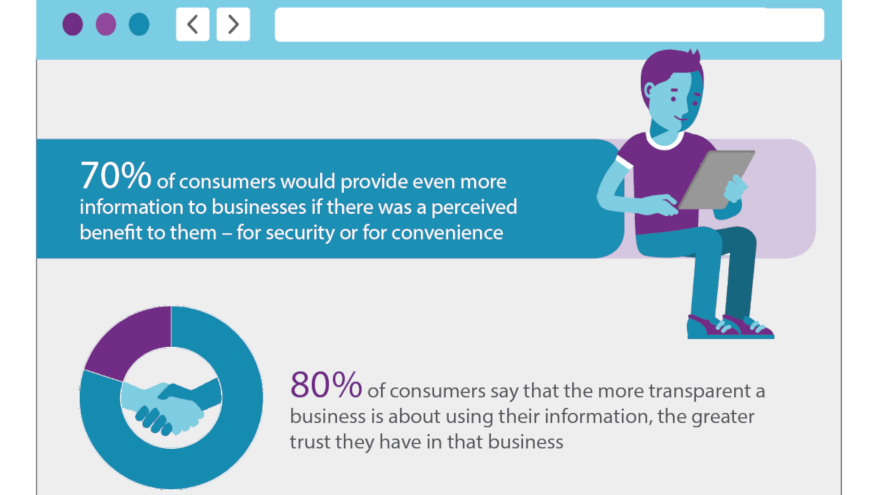Dealers probably know this sequence all too well. A walkaround and test drive of a vehicle both went well, and the financing process advanced to the point where the potential buyer sees what the monthly payment could be.
Then customers recoil, become frustrated and perhaps even leave the showroom, turning into a dreaded “be back.”
With that scenario in mind, Cox Automotive’s Rates & Incentives Group (CAR&I) released a new whitepaper on Friday, pinpointing a lack of transparency and accuracy in the pricing and payment negotiation process as a main cause of friction between dealers and consumers that can derail a deal.
With vehicle prices and interest rates rising and consumer affordability declining, CAR&I emphasized dealers can’t allow any details to slip through the cracks. It’s why the Cox Automotive division generating the whitepaper titled, “Optimizing Rebates & Incentives for Consumer Digital Retailing Experience.”
According to the 2018 KBB.com Incentives Survey, only 24 percent of shoppers are fully aware and researched all incentives. Historically, Cox Automotive acknowledged transparency into consumer incentives has varied. Changing customer expectations and shopping behaviors now make full transparency required, according to CAR&I.
Today, more automotive dealer service providers (DSPs) are moving the process of applying incentives from a dealer practice to a consumer-centric experience through digital retailing tools. With these new tools, customers can confidently research and price a specific vehicle with the incentives and conditional offers applied — all without entering a dealership.
But CAR&I stressed the success of the deal, however, relies on the accuracy of a dealer’s data within the DSP application.
Utilizing a methodology developed by CAR&I, this new whitepaper analyzes the accuracy of the data used to calculate pricing and payment information presented through DSP tools. In the study, CAR&I compared APRs, cash and conditional incentives through these various tools for seven new vehicles in the East Coast and West Coast markets.
The analysis looked at data from three competitive incentive providers, including CAR&I.
The study found significant variations across the three providers, ranging from $0 to $6,750 in pricing for the same vehicle, resulting in monthly payment fluctuations up to $122 per month for 60 months. The analysis also showed that both unnamed vendors incorrectly applied incentives for two vehicles, resulting in $500 to $750 in overstated incentives applied incorrectly costing dealers valuable margin.
CAR&I emphasized these disparities have wide-ranging consequences for dealers, including a loss of credibility in pricing as well as a loss on deals and profit. Paper authors said it’s not just that consumers might walk away from one purchase. It can affect repeat purchases and referrals, too. Pricing information must be perfect for digital retailing to build trust and transparency, and to improve the customer experience. This also means making accurate pricing available online.
“If DSP application incentive tools aren’t spot-on, the pricing information given to consumers is also inaccurate. If incentive and rebate data isn’t accurate, the whole deal can be sunk,” said Brad Korner, general manager for CAR&I. “Dealers in this hyper-competitive auto retail landscape can’t afford to have less-than-perfect pricing data. That can result in unhappy consumers and lost business.”
CAR&I pointed out that rebates and incentives also continue to play a major role in generating demand and sales for many brands.
Approximately 94 percent of new vehicles sold have a financial incentive applied to the transaction (purchase, finance or lease) which requires accuracy for dealers presenting pricing and payments to their online shoppers, according to Cox Automotive.
CAR&I went on to stress that sharing full coverage of all OEM incentives, and allowing consumers to see what they qualify for, builds trust in the process. It also provides necessary information to inform the buying journey.
The full whitepaper on “Optimizing Rebates & Incentives for Consumer Digital Retailing Experience” is available here.
Technology Hyundai is already deploying in South Korea with its financial services enterprises might be a preview of what the OEM eventually brings to the United States.
During IBM Think, Hyundai Card and Hyundai Commercial, financial services subsidiaries of Hyundai and Kia Motors, announced they are working with IBM to advance their use of cloud-based artificial intelligence and blockchain technology with the aim of improving the customer experience and expanding its financial services business globally.
The news was shared on Wednesday during IBM Think 2019, IBM’s annual conference focused on technology and business.
For the first time in the Korean finance industry, Hyundai Card has introduced an AI-based chatbot for customer service. Named “Hyundai Card Buddy,” it can engage with customers to answer common questions quickly while freeing Hyundai professionals to handle more complex customer service needs.
The company said South Korea has some of the highest rates of Internet use than any other country in the world, so Hyundai Card Buddy is a natural way to improve clients’ digital experience. Hyundai Card Buddy has helped 1 million customers since it has launched, according to a news release.
The automaker explained the system continuously learns through interactions with users and by relying on natural language processing and machine learning technology from IBM Watson, Hyundai Card Buddy is able to understand hidden meaning, interpret client questions and provide answers and information to enhance the client experience and streamline customer service operations.
In addition, Hyundai Commercial, a corporate finance company that provides leasing and financial services for commercial vehicles and construction equipment, is collaborating with IBM to apply blockchain and modernize its business model.
Using the open source Hyperledger Fabric to create a new supply chain financing ecosystem for Hyundai Commercial, officials explained the network is designed to reduce lead times and costs in financial transactions among dealers, distributors and manufacturers.
Officials went on to mention the network for commercial financing will provide participants with a single view of all transactions happening in the network while automating manual processes and enabling transaction data to be securely managed and shared more efficiently.
“It’s almost impossible to fully understand or memorize the benefits, limits or conditions of a finance product. Customer services employees’ turnover rate and training cost is very high while the customers demand high quality service. So we introduced IBM Watson and it became a very powerful tool to help our employees and helped us to lower our employee turnover rate to less than 10 percent,” said Ted Chung, chief executive officer of Hyundai Card, Hyundai Capital and Hyundai Commercial.
Andrew Chang, general manager of IBM Korea, also discussed being involved in this technology project. IBM is a world leader in AI software, services and technology for business. IBM has deployed Watson solutions in thousands of engagements with clients across 20 industries and 80 countries.
“Korea enjoys a digital-first financial services industry in which the rapid adoption of technologies such as artificial intelligence, analytics, blockchain and cloud are improving the customer experience and helping expand into new opportunities,” Chang said.
“Working with IBM, Hyundai Card and Hyundai Commercial have pioneered these new technologies and have been a strong innovator in the industry,” Chang went on to say.
GBG, a U.K.-headquartered identity data intelligence specialist, recently announced that it has conditionally agreed to acquire IDology, a U.S.-based provider of identity verification and fraud prevention services.
The company said the all-cash transaction is for $300 million.
IDology is a fast-growing provider of identity verification services that is designed to help remove friction both in onboarding customers and in the detection of fraud. Officials highlighted its U.S. identity verification and fraud prevention services, led by its ExpectID product range, are the perfect strategic complement to GBG’s identity verification solutions.
“For the past 15 years, IDology has provided multi-layered identity verification. With the combination of IDology and GBG, we intend to innovate, delivering exceptional solutions for our customers, focusing on driving customer revenue and preventing fraud,” IDology president and chief executive officer John Dancu said.
“With GBG’s expertise in global data, we are all excited to expand our solutions and our trusted consortium network for customers across the globe,” Dancu continued.
GBG claims it can quickly validate and verify the identity and location of 4.4 billion people globally and accesses a breadth of data from more than 200 global partners to establish trust between businesses and their customers. Having completed 11 acquisitions since 2011, GBG’s $300 million acquisition of IDology is its largest to date.
GBG has seen strong growth in the U.S. market. Its existing U.S. identity business has grown organically with customers across technology, payments and retail verticals. Meanwhile, Loqate, its location intelligence solution, has offices in New York and San Francisco and has seen high demand from household names like Abercrombie and Fitch, Oracle and Nordstrom.
The acquisition will strengthen GBG’s broader portfolio and enhance the business’ product capability and customer reach.
The companies went on to mention GBG and IDology have a history of working together in partnership and share a similar culture with a strong emphasis on people and talent. IDology’s U.S. customer base currently accounts for 99 percent of its revenue, which will provide GBG with geographic scale and help to position GBG as a global leader in electronic identification verification.
“I am delighted to announce the acquisition of IDology. With attractive organic growth, significant synergies and a strong cultural alignment, this is a high-quality addition to GBG,” chief exeutive officer Chris Clark said. “The combination of IDology and GBG enables us to meet growing customer appetite for an identity verification provider with global capabilities and scale in key markets.
“We are excited by the compelling strategic rationale behind this acquisition,” Clark continued. “It enables GBG to quickly expand even further into North America, a key growth territory for the business. We have already built an exciting domestic presence in the U.S. with Loqate, our location proposition, and IDology now gives us an excellent platform for both identity verification and fraud prevention.
“The board and I look forward to the future success that we anticipate that our combined business can deliver,” Clark went on to say.
GM Financial is enhancing its efforts to ensure the individuals signing contracts with the captive are in fact who they say they are.
This week, GM Financial announced its collaboration with Spring Labs as part of its Spring Founding Industry Partners (SFIP) Program, which is geared to drive improved data management standards to help address critical auto finance industry issues like identity verification and synthetic identity fraud.
The SFIP program brings together financial institutions, data furnishers and technology partners to collaborate on research, development and implementation of Spring Protocol, the company’s blockchain technology network, prior to its public launch. Ultimately, this network is designed to transform how information and data are shared globally.
“As the captive finance arm for General Motors and one of the world’s largest auto finance providers, we are continually innovating and evolving our fraud prevention and detection capabilities to better serve and protect our customers and dealers,” said Mike Kanarios, chief strategy officer at GM Financial.
“Today’s announcement underscores our commitment and investment to advance these efforts, and we are pleased to collaborate with Spring Labs as a member of the SFIP program,” Kanarios continued.
Spring Labs chief executive officer Adam Jiwan added, “We are excited to partner with GM Financial to create solutions on our developing network to address vexing economic problems such as identity fraud.
“We look forward to announcing additional significant partnerships in due course,” Jiwan went on to say.
Editor’s note: More details about what’s happening at GM Financial will be showcased in an upcoming episode of the Auto Remarketing Podcast, featuring Kyle Birch, who is the company’s executive vice president and chief executive officer for North America. Previous episodes are available here.
During the Vehicle Finance Conference hosted by the American Financial Services Association this past January in San Francisco, Nick had the opportunity again to sit down with Kyle Birch, executive vice president and chief operating officer for North America at GM Financial.
The wide-ranging conversation covered not only how GM Financial performed in 2018, but also how the captive is leveraging both people and technology to be successful.
The podcast discussion can be found below.
Download and subscribe to the Auto Remarketing Podcast on iTunes or on Google Play.
You can also listen to the latest episode in the window below.
Catch the latest episodes on the Auto Remarketing Podcast homepage and on our Soundcloud page.
Please complete our audience survey; we appreciate your feedback.
How fintech is going to be the technological solder that binds dealerships, finance companies and consumers into an even stronger relationship permeated discussions at a host of annual automotive events late last month in San Francisco.
Cherokee Media Group is looking to continue that dialogue in a more intimate conference setting when it again hosts the Automotive Intelligence Summit, which aims to give leading experts in the auto fintech space the opportunity to reinforce the need for collaboration to strengthen current revenue streams and open new ones.
“Last summer’s first Automotive Intelligence Summit poured a great foundation for industry dialogue we heard for the remainder of 2018 and into the opening portion of this year,” Cherokee Media Group president Bill Zadeits said. “And we want this year’s Summit to extend that conversation where dealerships, finance companies, fintech entrepreneurs, investors and related experts all can let their voices be heard in an interactive setting that delivers more than just talking points, but also tangible strategy to lift the entire industry.”
The Automotive Intelligence Summit again will be in Raleigh, N.C., in the heart of North Carolina’s Research Triangle. Nestled among some of the most successful technological companies and leading universities, attendees will be gathering in the Tar Heel State capital on July 23-25 for a mix of keynote presentations and networking opportunities.
Last year, experts from an array of successful firms participated, including:
— Ally Financial
— Cox Automotive
— defi SOLUTIONS
— DRN
— Experian
— EY
— Fair
— Hudson Cook
— IBM
— IHS Markit
— KAR Auction Services
— Maryann Keller and Associates
— National Automobile Dealers Association
— SAS
These leading authorities shared not only what’s happening within their shops, but also provided projections about ways fintech might influence how dealerships and finance companies gain new customers as well as retain current ones.
Cherokee Media Group is already accepting applications to speak this summer’s event. Applications can be completed here.
“We are looking to provide the platform for the most innovative companies, experts and executives to showcase what is going to impact our businesses so the industry can remain nimble and address potential challenges,” Zadeits said.
“We all know fintech development is in constant motion,” he continued. “The Automotive Intelligence Summit will provide a pathway for growth for the remainder of 2019 and beyond.”
For more details about the Automotive Intelligence Summit, go to www.autointelsummit.com.
Carvana already boasted a strong relationship with Ally Financial to help the e-commerce platform for buying and selling used vehicles.
And on Wednesday, Carvana confirmed it now has a connection with Bank of America, too.
According to a news release, the Bank of America digital car shopping and financing platform will now add more than 15,000 Carvana Certified vehicles to its existing inventory of both new and used vehicles available via dealers across the country.
“We always want to give our customers an exceptional experience, whether they finance with Carvana or work with their own banks,” Carvana founder and chief executive officer Ernie Garcia said.
“We look forward to introducing even more Bank of America customers to the new way to buy a car now that they can apply their Bank of America financing to our vehicles on the bank’s digital car shopping platform,” Garcia continued.
Customers simply can visit Bank of America’s digital shopping tool from a computer or mobile device. Once there, they can select a Carvana vehicle, submit an application to Bank of America for immediate financing terms, finalize the transaction on Carvana.com and even trade-in their current vehicle, all in as little as 10 minutes.
Buyers purchasing a Carvana vehicle can take advantage of Carvana’s as-soon-as-next day delivery and complete their purchase and financing tasks without leaving the comfort of home.
“We launched Bank of America digital car shopping to offer our clients a more convenient and transparent experience – from searching vehicles and dealerships to qualifying for financing all from a desktop or mobile device,” said David Hollodick, senior vice president of consumer vehicle lending at Bank of America.
“With Carvana vehicles added to our platform, our clients can take the process one step further and finalize a purchase without ever leaving home. We are delighted to bring this unique experience to more of our clients,” Hollodick continued.
All Carvana vehicles listed on Carvana.com and on the Bank of America car shopping platform are Carvana Certified, meaning they have all undergone a 150-point inspection, have no frame damage and have never been in a reported accident. Features, imperfections and updated information about open safety recalls are listed on the unit’s vehicle description page.
Additionally, every Carvana vehicle comes with a seven-day return policy, giving the customer the time to ensure the vehicle fits their life.
“Whether it’s installing car seats or testing the turning radius in a tight parking garage at work, it’s an upgrade to the traditional four right-hand turns around a dealership block,” Carvana said.
Vinli landed new funding this week that executives say will enable the company to broaden its mobility services and integrations to customers worldwide.
The connected car and data intelligence platform provider announced on Tuesday it has closed $13.5 million in additional funding. The Series B funding round has participation from new and existing investors, including global electric utility provider E.ON, The Westly Group, Hersh Family Investments and Hal Brierley.
The company said Konrad Augustin, investment director at E.ON Scouting and Co-Investments, and Kenneth Hersh, will join Vinli’s board of directors.
Vinli highlighted that it is now on the fast track to add electric vehicles to its growing list of platform capabilities and expand its innovative data intelligence platform, Era.
The company described Era as a revolutionary machine learning platform that can facilitates the streaming from any data source into a secure and intelligent location. The outcome of this technology is increased transparency of data, predictive visibility and flexibility for real-time business and consumer insights.
As Vinli put it, Era is “what smart companies want with their smart vehicle solutions.”
Vinli chief executive officer Mark Haidar elaborated about what the latest funding injection means.
“The investment validates our place in the industry. In the last five years, we have seen the industry unfold and evolve into an industry driven by digital services,” Haidar said. “Companies today need viable data solutions — not only to support the growing number of data sources, but to deliver on the multiple service offerings to their end customers.
“We’re focused on making it easier for large fleets and automakers to access smarter data intelligence,” he continued. “It’s in helping those partners scale and be successful is what we look forward to most at Vinli.”
The company went on to mention the investment deepens the strategic partnership with E.ON, marking Vinli’s first collaboration with an energy company. E.ON will leverage Vinli digital services and data intelligence platform, Era, to broaden electric mobility offerings and tailor solutions for electric fleets.
“With the information from the car itself, we are closing a gap in our data world for eMobilty,” said Frank Meyer, senior vice president innovation and customer solutions at E.ON.
“By combining customer vehicle and network data, we can identify trends at an early stage and will continually create new digital mobility offerings for our customers,” Meyer continued. “Beyond the competitive advantage, we see Vinli as an attractive investment. The company is the global innovation leader in a technology of the future.”
Vinli highlighted the funding round follows a strong fourth quarter of revenue growth, profitability and milestones for the company, including the announcement of Era, and a global strategic partnership with ALD Automotive to make connected services available to its global fleet of 1.6 million vehicles.
With the business in a growth stage, the company added that it will expand across multiple areas. Vinli said it will be making key hires this quarter to fill leadership and engineering roles in the next few months.
Whether a consumer is buying a personal care item costing just a few bucks or financing a vehicle purchase involving thousands of dollars, Experian insisted that digital commerce has changed the way consumers interact with businesses. Experts see how commerce is moving from face-to-face transactions to anonymous relationships built on trust.
Difficult to achieve and earned over time, Experian sees trusted online relationships are based on businesses providing a secure environment and a great customer experience.
In light of that backdrop, Experian’s Global Identity and Fraud Report found that 74 percent of consumers see security as the most important element of their online experience, followed by convenience.
While businesses often have invested in one at the expense of the other, Experian discovered that consumers across the globe expect both. So much so that 70 percent of them are willing to share more personal data with the organizations they interact with online, particularly when they see a benefit such as greater online security and convenience.
“Security and convenience are the bedrocks of a dynamic digital marketplace that effectively manages risk and delivers a seamless experience,” said Steve Pulley, Experian’s executive vice president and general manager of global identity and fraud solutions.
“The availability of information consumers share with businesses makes this possible, but it’s the same information that puts them at a greater risk for fraud, making trust more important than ever,” Pulley continued.
Findings from the study also reveal that consumers and business leaders agree that security methods enabled by new technologies and advanced authentication solutions instill online trust.
In fact, consumer confidence grew from 43 percent to 74 percent when physical biometrics was used to protect their accounts.
Experian learned that businesses also are beginning to embrace the changing technology. Half of organizations globally reported an increase in their fraud management budget over the past 12 months.
“Trust begins with a business’s ability to deliver more from the information they already have and to use advanced technologies to identify their customers and provide a relevant experience without increasing their risk exposure,” Pulley said.
“In other words, consumers really can expect both — security and convenience.”
The report went on to discuss how many businesses are proactively sharing with customers how they use their personal information. The report found that nearly 80 percent of consumers say the more transparent a business is about the use of their information, the greater trust they have in that business.
The report revealed that 56 percent of businesses plan to invest more in transparency-inspired programs such as educating consumers, communicating terms more concisely and helping consumers feel in control of their personal data.
To develop the study, Experian interviewed more than 10,000 consumers and more than 1,000 businesses across 21 countries around the world.
Additional findings from the third annual fraud report include:
• Fifty-five percent of businesses reported an increase in fraud-related losses over the past 12 months, particularly account opening and account takeover attacks.
• Sixty percent of consumers globally are aware of the risks involved with providing their personal information to banks and retailers online.
• Ninety percent of consumers are aware that businesses are collecting, storing and using their personal information.
• Banks and insurance companies are the organizations trusted most by consumers across most regions. Online retail sites and social media sites trail considerably on trust.
• Nearly nine out of 10 consumers report conducting personal banking as their top online activity.
• Passwords, PIN codes and security questions remain the authentication methods most widely used by businesses, followed by document verification, physical biometrics and CAPTCHA.
The Global Identity and Fraud Report also shows how different regions across the globe view and manage fraud:
• Concern for fraud and increased fraud losses are highest among businesses in the U.S.
• The greatest number of consumers who already have experienced a fraudulent event online are in the U.S., with the lowest number of consumers from EMEA.
• The U.S. and the U.K. lead with the biggest increase in fraud management budgets over the past 12 months, with three-quarters of businesses budgeting more for fraud management this year.
• Latin America is a top user of advanced authentication technology where CAPTCHA, physical biometrics and customer identification programs make up the top three authentication methods. This differs for businesses in other regions, which rely more heavily on passwords, PIN codes and security questions.
• Physical biometrics seems to have the largest positive impact on trust, particularly in Colombia and the U.S.
• The U.S. has invested the most when it comes to transparency initiatives in the past 12 months, and Colombia has the highest intent to invest more in the next six months.
Experian’s identity and fraud business comprises more than 300 fraud experts around the world working to protect people’s identities and fight fraud for businesses across multiple sectors, including financial services, telecommunications, retail/e-commerce, insurance, government and healthcare.
The full Global Identity and Fraud Report can be downloaded here.
Since blockchain is establishing its presence in the automotive sector, strategy and marketing consultancy Simon-Kucher & Partners projected after dissecting recent study findings that the revenue potential for this technology could ramp up to be nearly $120 billion by 2030.
Simon-Kucher orchestrated a survey to delve deeper into what’s prompting car owners and other road users to be interested in the many ways in which blockchain can be used to create revenue opportunities. The firm learned that survey participants were particularly interested in time-saving solutions such as traffic congestion management (48 percent) and automated payments (54 percent).
The firm’s newest blockchain research also mentioned applications that provide added security such as protected data access (50 percent), enable increased efficiency such as automated payments (54 percent), or greater convenience such as remote access (46 percent) were also popular with participants.
“The added value of blockchain applications for the end customer is obvious,” said Peter Harms, a partner in Simon-Kucher’s global automotive practice. “Automakers need to be aware that they can generate significant profit from these applications.”
The study also revealed how much drivers would be willing to pay each month for various blockchain solutions:
—Traffic congestion management: 27 percent of survey participants would be willing to pay on average $11 per month for this solution
— Protected data access: $11 (7 percent)
— Remote control of vehicle (such as locking/unlocking): $8 (12 percent)
— Automated payments (such as at parking or charging stations): $7 (17 percent)
— Immutability of vehicle records (when buying a used vehicle): $6.00 (7 percent)
Based on these figures, Harms computed that total revenue generated by 2030 is set to reach $120 billion.
“The added value of blockchain solutions and customer willingness to pay for them already indicate enormous monetizing potential,” Harms said. “Now is the time for the automotive industry to start adjusting its strategies and business models, not only to expand their current offerings with blockchain solutions but also to monetize them.”
To accomplish this feat, Harms pointed out industry-wide infrastructure is required.
“Close cooperation among individual stakeholders (e.g. automotive manufacturers, taxi companies, municipal corporations, toll operators) is essential to unlock the multi-billion-dollar potential of this technology,” he added.
The study titled, “Blockchain in the Automotive Industry,” was conducted worldwide in October by Simon-Kucher & Partners. It surveyed various factors, including participants’ level of awareness of blockchain, future areas of application in the automotive industry, and willingness to pay for individual applications.
Founded in 1985, Simon-Kucher & Partners has more than 30 years of experience providing strategy and marketing consulting with a focus on top-line power. The firm has more than 1,200 employees in 38 offices worldwide.












